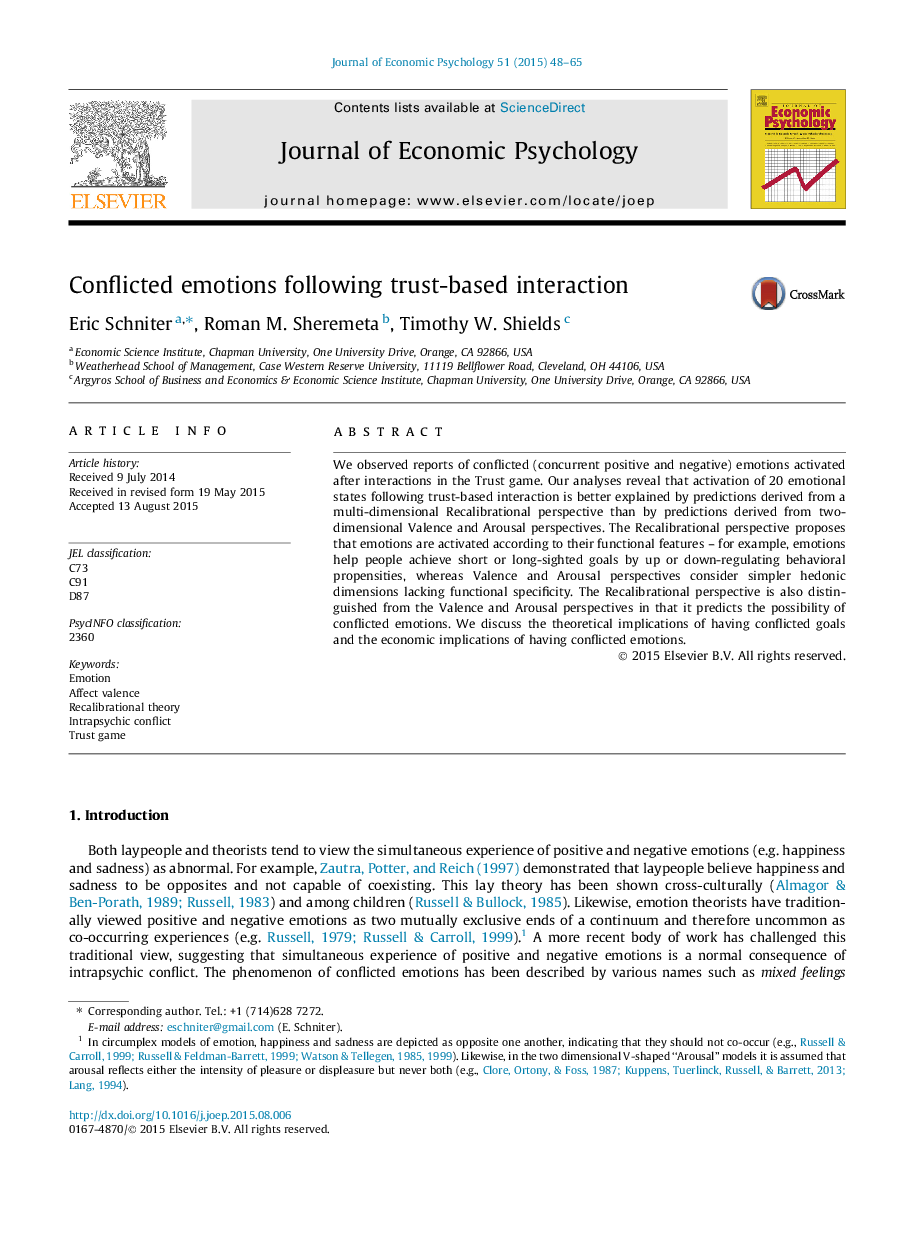| Article ID | Journal | Published Year | Pages | File Type |
|---|---|---|---|---|
| 7244489 | Journal of Economic Psychology | 2015 | 18 Pages |
Abstract
We observed reports of conflicted (concurrent positive and negative) emotions activated after interactions in the Trust game. Our analyses reveal that activation of 20 emotional states following trust-based interaction is better explained by predictions derived from a multi-dimensional Recalibrational perspective than by predictions derived from two-dimensional Valence and Arousal perspectives. The Recalibrational perspective proposes that emotions are activated according to their functional features - for example, emotions help people achieve short or long-sighted goals by up or down-regulating behavioral propensities, whereas Valence and Arousal perspectives consider simpler hedonic dimensions lacking functional specificity. The Recalibrational perspective is also distinguished from the Valence and Arousal perspectives in that it predicts the possibility of conflicted emotions. We discuss the theoretical implications of having conflicted goals and the economic implications of having conflicted emotions.
Related Topics
Social Sciences and Humanities
Business, Management and Accounting
Marketing
Authors
Eric Schniter, Roman M. Sheremeta, Timothy W. Shields,
